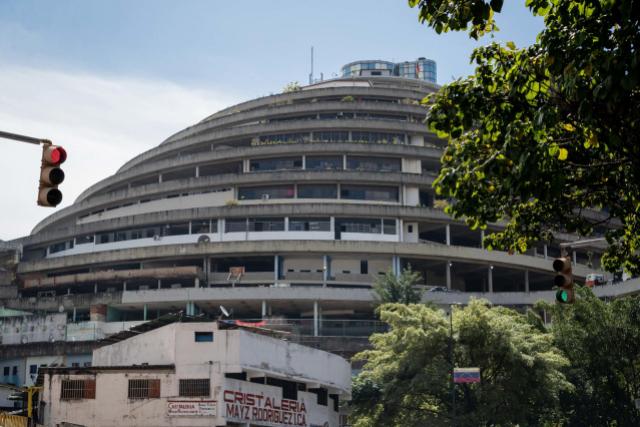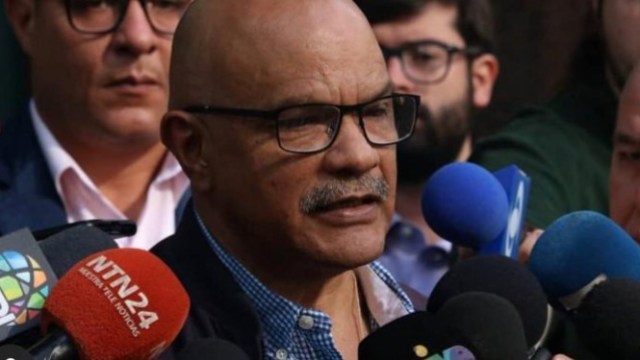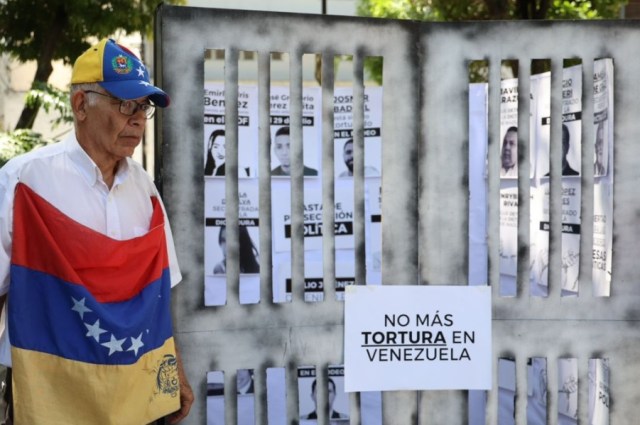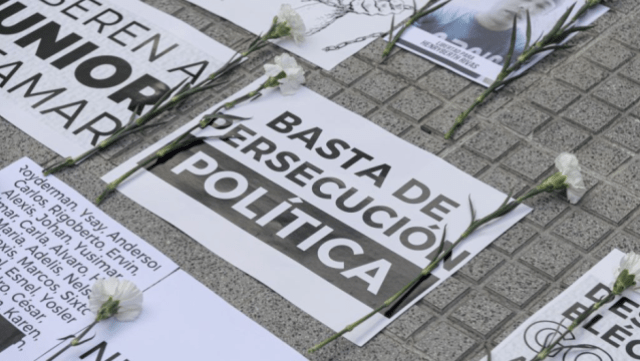
The current situation of political prisoners in Venezuela after the presidential elections on July 28th has reached critical levels, raising international alarms.
lapatilla.com
Far from being a historic day for the country’s democracy, Nicolás Maduro’s response after the electoral process on that Sunday in July marked the deepening of a government model based on repression and persecution against those who dissent.
According to Humberto Prado, Director of the Venezuelan Prison Observatory, the increase in arbitrary detentions is a repetition of the history already experienced in previous years, where the state apparatus used its power to silence the opposition and those who criticize the actions of the regime.
Prado, who is a staunch defender of human rights in Venezuela, has for years denounced the difficult situation faced by political prisoners in the country, and therefore claims that post-election arrests are part of a “pattern of repression” by the current administration.
“When you talk to me about the increase in detainees after the elections of July 28th, I can respond in a general way that we have already experienced that story,” said Prado in reference to the events that occurred in 2015, when the government began a wave of persecutions and imprisonments against deputies and political leaders.
Furthermore, he mentioned that although the context seems different, the modus operandi of Chavismo remains the same: arbitrary arrests, selective persecution and systematic violations of human rights.
However, there is a differentiating factor in the actions of this year: in the wave of repression between the end of July and August there were at least 25 deaths, a large number of people injured and more than 2,200 detained.

According to Prado, this time the focus of repression has not only been on political actors, but also on ordinary citizens, such as observers, presidents of the polling stations and electoral witnesses who participated in the supervision of the elections.
Inhumane conditions
Regarding the conditions in which Venezuela’s political prisoners are held, the lawyer and activist pointed out that they are not receiving treatment different from that of criminal prisoners.
In this context, Humberto pointed out that the penitentiary facilities dismantled by the Government under the pretext of ending the “pranato” (gang rule of prisons), such as Tocorón and Tocuyito, now house political prisoners in “inhumane” conditions, since they were designed for less than 750 people, but today they each exceed 1,000 inmates, many of them without access to visits, medical care or adequate legal defense.
“Post-election political prisoners have not been allowed visits and have been kept isolated from their families,” said Prado. In addition, they have been denied legal assistance with lawyers they trust, flagrantly violating their rights established in the National Constitution and in International Law.
Given this dire reality, Prado mentioned that critical overcrowding and lack of sanitation have turned Venezuelan prisons into “universities of crime,” where social reintegration is only a distant utopia.

In addition, he highlighted the psychological impact of arbitrary detentions, not only on the detainees, but on their families, particularly children, who suffer the consequences of state repression.
State Terrorism
Mass detentions, torture and persecution are not isolated events, but part of a State policy, according to the Inter-American Commission on Human Rights and the International Fact-Finding Mission on Venezuela. Both organizations have pointed out that the country practices “State terrorism,” where fear and repression are tools used to maintain political and social control.
Prado has insisted that there is no autonomy or separation of powers in Venezuela, a reality that facilitates the impunity with which these violations are committed. “The judicial system is completely compromised. Political prisoners do not have the right to adequate defense, and in many cases they are assigned public defenders who act on behalf of the State,” he said.
Prisoners as bargaining chips
International pressure has been key to making the situation of political prisoners in Venezuela visible. However, Prado warned that although international organizations have issued multiple condemnations, the Maduro regime continues to use detainees as “bargaining chips” in political negotiations.
“It is necessary for the international community to maintain the pressure, but a sustained pressure, because when Venezuela is no longer in the spotlight, the repression continues,” warned Prado.
With more than 1,900 political prisoners currently documented (after the release of a few), the Venezuelan crisis remains a pending issue on the international human rights agenda. Prado calls on international organizations to continue denouncing the arbitrary detentions, forced disappearances and torture that continue to be practiced in the country.

“It seems that we are following the path of other countries with long-standing dictatorships, such as Cuba or Nicaragua. As long as there is repression, there will be more migration, more political prisoners and more human rights violations. What we have left is to maintain the pressure and demand the release of all political prisoners in Venezuela.”
“It’s been two months since we heard anything about my brother”
While on Saturday, September 28th, Chavismo held marches to commemorate the two months since the supposed “electoral victory” of Nicolás Maduro, the story of the relatives of political prisoners is totally different.
The anguish and pain of not knowing “anything” about their relative marks every minute, making the days longer, as if the clock “went backwards.”
“Today, it’s been two months since we heard anything about my brother. The last time we heard about him was on Monday, July 29th, when we were protesting. Since then, we haven’t heard anything about him. We had been told that he was imprisoned in Tocorón, but it’s uncertain, we don’t even know if he’s still alive,” were the crude words of someone who suffers the consequences of a dictatorship and who, out of fear, does not reveal his identity.
This post was originally published on this site be sure to check out more of their content.






